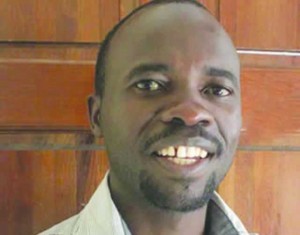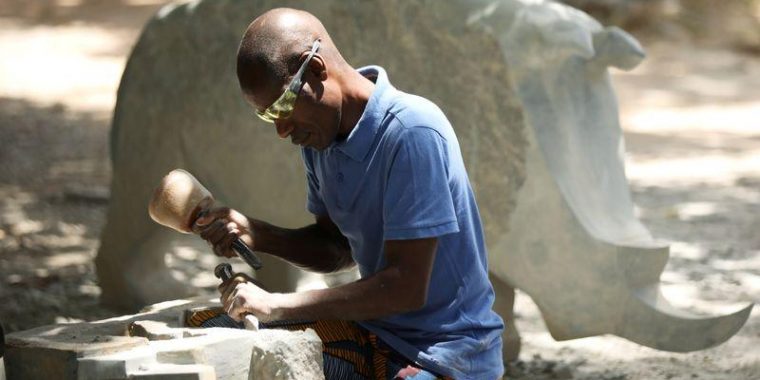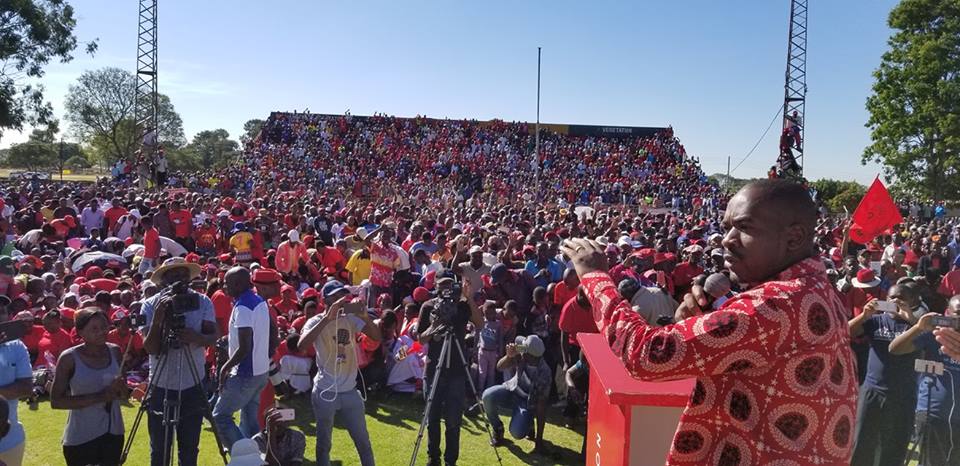“I’m going to keep on running because a winner don’t quit on themselves.” — Beyoncé
The top issue for Super Tuesday voters this week in Alabama, Arkansas, California, Maine, Massachusetts, Minnesota, and North Carolina was healthcare. In the legal profession specifically, and in our society generally, we don’t talk about our health issues enough, especially mental health. Yet it remains top of mind for so many of us.
When it comes to healthcare, we are simply failing women of color, particularly black women. And it is fatal. Yesterday, I had the opportunity to catch up with Nickeyea (Nicky) Wilkinson and Ashlee Wisdom. Wilkinson is assistant counsel for a North Carolina health insurer and a Hampton University and North Carolina Central University (NCCU) School of Law alum. Wisdom is Director for Junto Health, Founder of Health In Her HUE, and a Howard University and New York University (NYU) alum. Both are attempting to move the needle when it comes to reducing racial health disparities.
In his book, Upstream: The Quest to Solve Problems Before They Happen, Dan Heath highlights the power of swimming upstream to solve problems. By focusing on practical solutions for preventing problems rather than simply reacting to them, Heath provides several examples in our broken healthcare system that can be directly addressed through his “upstream” mental model. Heath also hits upon psychologist and children development expert Richard Trembley’s social determinants of health research regarding criminology. Heath, citing Trembley’s research, argues that the best time to prevent chronic aggressive behavior and teenage crime is when the criminal is in the mother’s tummy. By reducing a cluster of risk factors involving the mother — “maternal poverty, smoking, malnutrition, anger, depression, poor marital relations, low education, and having the baby as a teenager” — we can reduce crime in our society. As Heath states, “we’ll never run out of room upstream.”
Heath compares our “upstream” and “downstream” healthcare spending with other countries and concludes America (compared to other countries’ spending as a percentage of GDP) doesn’t necessarily overspend on healthcare, rather we don’t invest enough in social care (upstream) and spend too much on healthcare (downstream). In fact, when you combine social-care and healthcare spending, our country’s budget, or pot of money dedicated to society’s health and illness, is rather unremarkable. But this distinction in budget allocation, underinvestment in the upstream and overspending in the downstream, compared to other developed countries leaves us with higher costs and worse health outcomes than our peer nations.
It’s no coincidence that Wilkinson and Wisdom are swimming upstream to reduce racial health disparities by providing forums for community, conversation, and education.
Last year, Wilkinson had a myomectomy, which has helped her to discover her life’s purpose. In 2018, Wisdom founded Health In Her HUE as an inviting space for black women to be informed and to also share their expertise and experiences with other black women. This year, they are both executing their visions and amassing gallons of sweat equity in their respective labors of love. Throughout my numerous conversations with each of them, I continue to be in awe of their grit and determination. And I believe you will be inspired by their passions and missions as well. Without further ado, here is a (lightly edited and condensed) write-up of our conversations:
Renwei Chung (Renwei): Can you share a bit about your background and what attracted you two to your current healthcare roles?

Nickeyea Wilkinson, Assistant Counsel, Hampton University and NCCU School of Law Alum
Nickeyea Wilkinson (Nicky): Prior to my current in-house counsel role with a North Carolina health insurer, I worked for a tech company that provided Interactive Response Technology (IRT) and Randomization and Trial Supply Management (RTSM) solutions for clinical trials.
The exposure to two different stakeholders in the healthcare ecosystem has given me a bird’s-eye view on critical issues impacting the healthcare industry, as well as the methods these stakeholders use in order to address these issues.

Ashlee Wisdom, Director, Founder, Howard University and NYU Alum
Ashlee Wisdom (Ashlee): I was a pre-med student in undergrad because I initially wanted to become a child psychiatrist. After a few internships, and struggling through organic chemistry, I realized I was passionate about healthcare but had no desire to be a clinician.
When I volunteered for an organization Peer Health Exchange during my senior year, the interview and training process was my first exposure to another side of healthcare — public health. My first job after undergrad was working as a grant writer for a federally qualified health center (FQHC), where I learned how inequitable our healthcare system is, and why safety nets like FQHCs even existed.
That job helped me realize I could channel my passion for social justice and equity into a meaningful career in healthcare.
Renwei: What do you hate most about the status quo in healthcare?
Nicky: The cost and access to healthcare (including resources and information) for many people with lower socioeconomic status or who have been historically underserved are still huge issues within our healthcare system, and are two of the things I hate most.
While I appreciate the valiant efforts of many stakeholders in the healthcare ecosystem, there is still so much more work to be done to address the costs and access to healthcare. There needs to be an advancement of health equity, particularly as it relates to minorities and women.
Ashlee: I hate that too often people are afraid to make others uncomfortable with hard truths that need to be said and addressed if we really want to create a more equitable healthcare system.
The shift to a more consumer-focused healthcare industry excites me because it’s forcing many of these legacy healthcare institutions to have a moment of reckoning, which is long overdue.
Renwei: You suffered a bit of a health scare last year Nicky — can you tell us more about this?
Nicky: Over the span of several months, I had severe pain in my lower abdomen. While the pain was not persistent, I had to go to the emergency room a handful of times for treatment. On the Saturday of Labor Day weekend, I woke up in excruciating pain. Again, I rushed to the emergency room. However, this time I was finally given a diagnosis.
I was diagnosed with having an ovarian cyst that had caused my ovary to become twisted. I was told that I needed emergency surgery to save my ovary. Also, I had an abdominal myomectomy to remove a large fibroid. A few months before the surgery, I learned that I had a large and growing fibroid. I explored various treatment options, but some options were not viable for several reasons, including possible infertility. As fate would have it, my episodic emergency quickened my decision to have a myomectomy.
Renwei: How did this experience with fibroids change your perspective on the current state of healthcare?
Nicky: This experience made me thankful for having access to healthcare and health insurance. It also caused me to reflect on individuals (especially minorities and women) who may not have the same level of access to care that I have. I can’t imagine how crippling my medical expenses would be without adequate health insurance coverage or the financial means to cover them.
Unfortunately, what I can’t imagine, is a reality for someone who looks like me, is in the “places” I frequent, or that I call a friend. I am hopeful that while we are in the age of technology and innovation, we see changes to the healthcare landscape for those individuals who often fall through the cracks.
Renwei: Ashlee, how did your education at Howard University and then at New York University (NYU) inform your current perspectives?
Ashlee: At Howard, I learned a lot about my history and also the importance of being socially and politically conscious as well as community-oriented. NYU equipped me with the knowledge of how structural racism impacts healthcare and gave me a strong grasp on how to analyze the policies and economics of healthcare.
Renwei: Congrats on your speaking engagement this weekend — “How Healthcare’s Failures Fuel Innovation.” How did you choose to focus on this topic for your TEDxWakefield talk on March 7?
Ashlee: I will be talking about how the failures of our healthcare system fuel innovation and the importance of diversity and inclusion in healthcare innovation and investing. I chose these topics because the theme for this TEDx event is “Failing Forward …”
I want to use the opportunity to highlight the work of people of color who’ve founded healthcare companies in response to a pain point they experienced navigating the healthcare system. And then I want to make a CTA to the healthcare ecosystem to include people from historically disadvantaged groups in their innovation process and fund our companies.
Renwei: How would you describe your several years of experience working in community health and academic medical centers?
Ashlee: I would describe them as eye-opening and foundational. Working at an FQHC gave me a deeper understanding of how social inequities impact health outcomes. Then, when I went on to work for an academic medical center, my eyes were opened to the world of world-class research, how it works, and its implications for healthcare delivery.
However, I also observed how these elite spaces play a role in perpetuating the disparities that exist in healthcare. I learned the details of how research is funded and conducted, and I also got an inside peek into the politics behind advancing as a faculty member within an AMC. During that time, there was also a bit of a foreshadowing of my experience working in healthcare innovation and venture.
I soaked in all my experiences and didn’t really know exactly how they would culminate into a career per se, but I knew I was going to take these experiences and insights and apply them to every and any new opportunity as my career in healthcare progressed.
Renwei: You created a wonderful video that you just posted on Instagram about your recent experience with fibroids. Can you share with us what motivated you to create this video?
Nicky: Silently, I endured many years of physical and mental anguish because of fibroids. Realizing that there is a need for support motivated me to create this video, along with several others.
These videos are small “snippets” of a larger documentary on the “black women’s experience” with fibroids [see here, here, and here] that I want to create. I hope that the videos will encourage women to open up about their own health issues, spark conversations, and garner support from leaders representing both the private and public sectors of healthcare, technology, and academia.
I hope to share my story and connect with other women who may share similar experiences and/or conditions. It is now my mission to spread awareness about women health issues, particularly issues impacting women’s reproductive health, as well as voice my concerns about the lack of information, research, and support, especially as it relates to fibroids.
Fibroids have been donned the “black women’s disease” because of how disproportionately fibroids affect black women. I often feel that there is an angle or narrative echoed when we are discussing health issues that greatly impact minorities. And, too often, such discussion does not reflect the minority’s perspective. I want to change the narrative and create opportunities for open and honest discussion. My voice is a result of my own silence. While it is my “right to remain silent” and keep personal health experiences confidential, doing so does nothing for the greater good.
Renwei: Ashlee, what prompted you to found Health In Her HUE in August 2018? And what are some specific initiatives you are excited about for the rest of 2020?
Ashlee: I founded Health In Her HUE when I was pursuing my MPH at NYU, and while working full time for an academic medical center. At that time, I was working in a department that was extremely toxic for me as a black woman. While experiencing that, I was also reading academic articles for my classes and was saddened and enraged by the racial health disparities.
The outcomes for black women were abysmal, and not because black women are inherently more unhealthy, but because of structural racism. I was deeply disturbed and felt like I had to do something to make black women more aware of how much our social context impacts our health.
But I didn’t want to just stop there, I also wanted to equip them with information and tools that they could use to better care for themselves, and also navigate a healthcare system that’s often unsafe for them.
Health In Her HUE’s effort to equip black women to be empowered consumers of healthcare includes making it easier for them to connect with providers who look like them and whom they’re more likely to trust. We’re using technology to make those connections easier for black women to do. So I’m really excited about our beta launch and the opportunity to validate the demand for a platform and space like Health In Her HUE.
Within the first two weeks of launching, we’ve had almost 200 black women and providers create profiles on the platform. I am also extremely excited about hosting our first event series and a summit later this year. I really want to create an inviting space for black women to be informed and to also share their expertise and experiences with other black women.
Renwei: You mentioned you believe things happen for a reason, can you expound on this?
Nicky: I believe that our life purpose(s) is married to our desires and experiences. Beyond having a flourishing legal career, I desire to be a wife and a mom. The fact that I am dealing with issues that can impact my fertility, is a threat to my desires.
However, I am an incredibly optimistic person and a woman of faith. I will use my experiences with fibroids and ovarian cysts as a testimony and an encouragement tool. I do believe that sharing my story and advocating for other women, is one of my life’s purposes. Everything does happen for a reason!
Renwei: It was great chatting with you. Is there anything else you would like to share with our audience?
Nicky: Yes, please seek out opportunities to advocate for your health. Share your individual story. You never know who your story is giving a voice to!
Ashlee: Health In Her HUE is looking for advisors — if there’s anyone who connects with our mission and what we’re trying to build, please reach out to me at ashleewisdom@healthinherhue.com or on Twitter @AshleeWisdom. If you’re interested in checking out our Beta, you can here.
There are also several ways to keep in touch with Health In Her HUE’s progress: Join us on Instagram @HealthInHerHUE, Twitter @HealthInHerHUE, Facebook @HealthInHerHUE, LinkedIn @HealthInHerHUE
On behalf of everyone here at Above the Law, I would like to thank Nickeyea Wilkinson and Ashlee Wisdom for taking the time to share their stories with our audience. We look forward to following their successes and wish them health, wealth, and happiness in their respective careers.
Renwei Chung is the Diversity Columnist at Above the Law. You can contact Renwei by email at projectrenwei@gmail.com, follow him on Twitter (@renweichung), or connect with him on LinkedIn.
 Jordan Rothman is a partner of The Rothman Law Firm, a full-service New York and New Jersey law firm. He is also the founder of Student Debt Diaries, a website discussing how he paid off his student loans. You can reach Jordan through email at jordan@rothmanlawyer.com.
Jordan Rothman is a partner of The Rothman Law Firm, a full-service New York and New Jersey law firm. He is also the founder of Student Debt Diaries, a website discussing how he paid off his student loans. You can reach Jordan through email at jordan@rothmanlawyer.com.

















